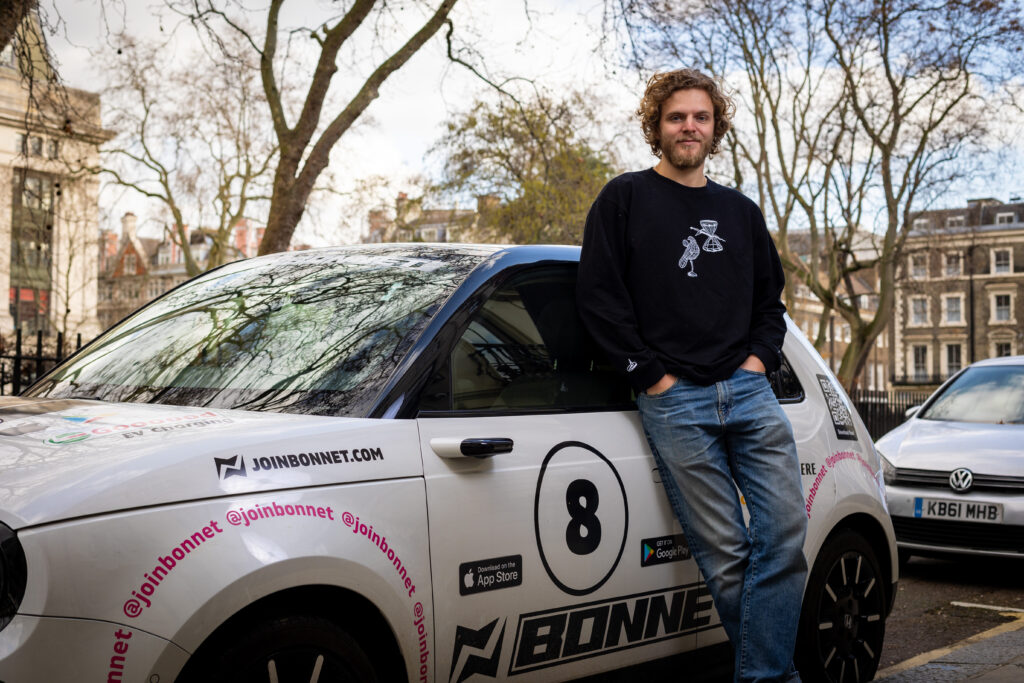It’s been a busy few weeks for the electric vehicle (EV) infrastructure sector in the UK, with new partnerships, the rollout of installations and the careful management of rising power prices.
Here are three key stories within the e-mobility sector over the last week:
BMW teams up with National Parks UK to rollout EV recharging posts
BMW UK and National Parks UK have announced a new partnership to rollout EV chargepoints at 15 National Parks.
The partnership – dubbed Recharge in Nature – will see recharging posts installed at key locations over the next three years. The Lake District National Park will be the first site to be upgraded, with work already underway to install the chargepoints.
Additionally, through the partnership, BMW will support local initiatives with the view to enable more sustainable tourism, help restore nature and boost biodiversity.
“Sustainability is at the heart of our business and enhancing the EV recharging network in the UK’s National Parks will help to make these favourite destinations more accessible for the increasing numbers of drivers who choose an electric car, as well as to support local communities in their shift to the new technology,” said Chris Brownridge, CEO, BMW UK.
“With biodiversity and the health of UK nature more important than ever before, we are also pleased to support a range of local projects within the Parks to help preserve these precious landscapes for the future.”
UK councils set to double EV chargepoints but geographical discrepancies remain
UK councils are set to install more than 16,500 EV chargepoints over the next 12 months, according to new data published by British Gas.
Obtained through Freedom of Information (FOI) requests, the data shows that the number of public chargers currently installed by local authorities will double over the next year.
The company submitted ROIs to 400 UK councils, with 195 responding to all the questions asked and revealing that to date 16,680 EV charging points have been installed, with plans for 16,563 to be installed over the coming 12 months.
“Electrifying the UK’s transport systems is a key component of its journey to net zero, and universal adoption of EVs will only be possible if the charging capacity is there to support it,” said Kim Royds, director of EVs at British Gas.
“It’s incredibly encouraging to see council investment in public charging infrastructure gather momentum. Local councils have an important role to play in expanding the UK’s EV charging infrastructure, giving drivers access to publicly available chargepoints in every town and city in the UK. Of course, alongside this we will need investment in home charging too in order to ensure that we create a robust charging network that enables everyone to benefit from an electric future.”
There is regional variation in the boost to local authority charging, with five regions and nations set to see the figure double.
London is looking at the highest in installed chargers, with a 101% increase from 7,848 to 15,753. While the East of England will see a 131% increase from 974 to 2,254, the North West a 450% increase from 375 to 2,064, the South West a 172% increase from 533 to 1,455 and Wales a 101% increase from 394 to 793.
Other areas are set to see a smaller uplift, with the South East looking at a 98% increase from 1,686 to 3,345, Yorkshire a 94% increase from 478 to 931, the North East a 83% increase from 424 to 780, the Midlands a 67% increase from 1,180 to 2937 and Scotland a 40% increase from 2,137 to 3,039.
But despite these increases in capacity, 24 councils still have no plans to install EV charge points over the next 12 month according to British Gas. Of these, 70% are outside of London and the South East.
The disparity in the rollout of EV chargers remains a key barrier to adoption for many in the UK. For example, while on-street chargers make up a quarter of the UK charging network, analysis from Bulb found that the north has 65% fewer EV chargers per 100,000 people than in the south, as highlighted by Bonnet co-founder Patrick Reich earlier this year.
Bonnet unveils new price plan designed to lower EV charging costs
Bonnet has unveiled a new price plan, which it says should save drivers 10%-15% from standard market rates for charging.
From 8 November, for £2 a month the company will offer a 10% discount for drivers using its 80,000+ chargers under its ‘Light Boost’ payment plan. And for £8 a month subscription, it will guarantee a 15% discount on charging costs under its ‘Turbo Boost’ package.
“We are driven to make the EV charging experience as simple, flexible and affordable as possible for everyone. With our new simpler price plan, whether you are taking it slow on a lamp-post charger or juicing up quick at a service station, you will make significant guaranteed savings with Bonnet,” said Patrick Reich, co-founder and CEO of Bonnet.
“The current turmoil in global energy markets makes this even more important than ever. We are proud that drivers across our UK and European network will have peace of mind in the knowledge that they are getting the best deal possible, wherever they are.”
Bonnet’s Pay-As-You-Go rate will change on its app to align the tariffs set by individual charging networks. This is a change from the previous cap of 50p/kWh, which the company said resulted in drivers overpaying for slower chargers.
It has contacted its users – which are spread across the UK, Austria, Belgium, France, Germany, Italy, Luxembourg, Netherlands, Spain, Sweden and Switzerland – to make them aware of the changes.
Those who currently use the Bonnet ‘Refills’ tariff will be offered two months free boost membership, to spur the transition.
Further details of how the new pricing system will work can be found on Bonnet’s website here.






